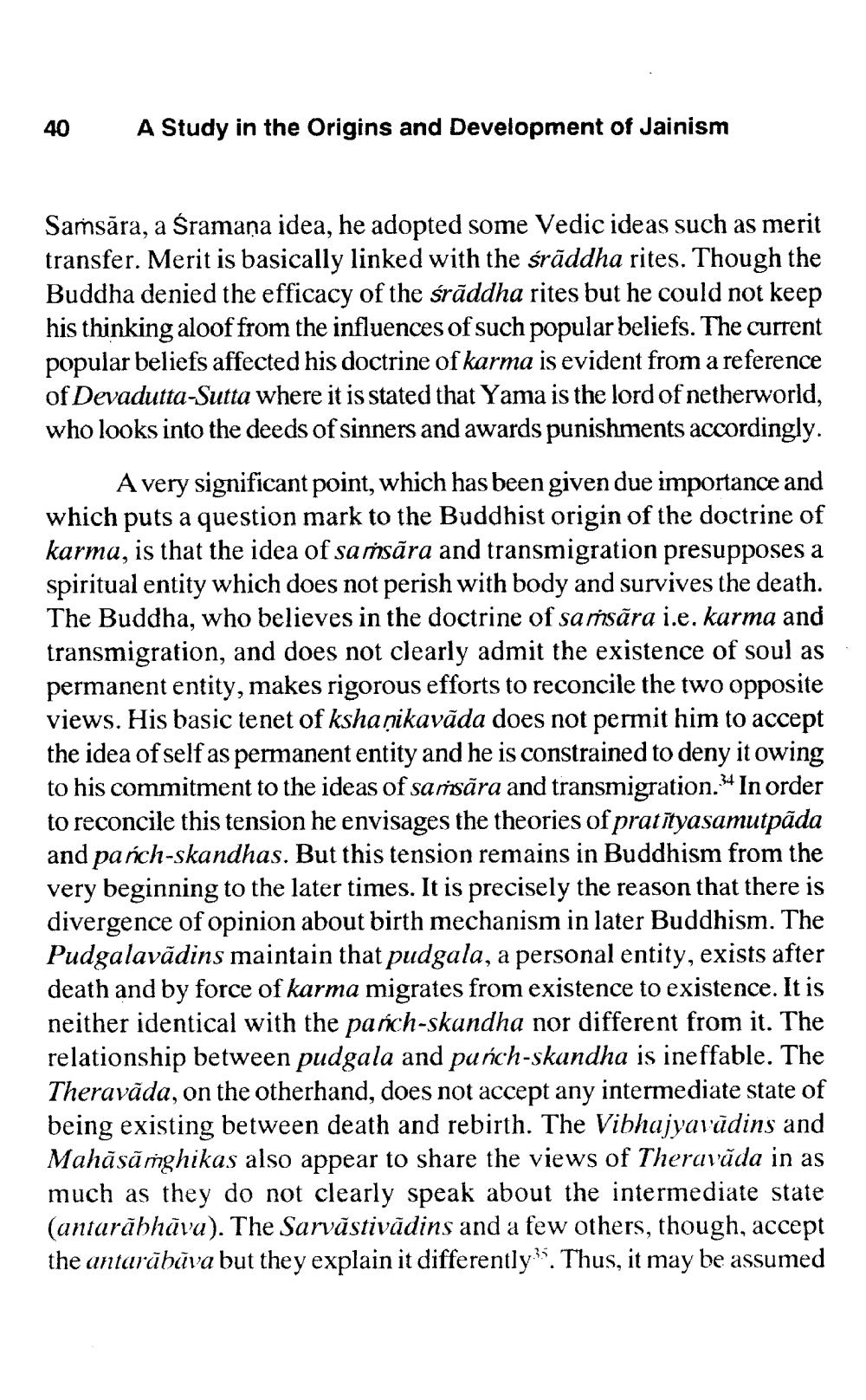________________
40
A Study in the Origins and Development of Jainism
Samsara, a Śramana idea, he adopted some Vedic ideas such as merit transfer. Merit is basically linked with the śraddha rites. Though the Buddha denied the efficacy of the śraddha rites but he could not keep his thinking aloof from the influences of such popular beliefs. The current popular beliefs affected his doctrine of karma is evident from a reference of Devadutta-Sutta where it is stated that Yama is the lord of netherworld, who looks into the deeds of sinners and awards punishments accordingly.
34
A very significant point, which has been given due importance and which puts a question mark to the Buddhist origin of the doctrine of karma, is that the idea of samsara and transmigration presupposes a spiritual entity which does not perish with body and survives the death. The Buddha, who believes in the doctrine of saṁsăra i.e. karma and transmigration, and does not clearly admit the existence of soul as permanent entity, makes rigorous efforts to reconcile the two opposite views. His basic tenet of ksha nikavāda does not permit him to accept the idea of self as permanent entity and he is constrained to deny it owing to his commitment to the ideas of saṁsăra and transmigration. In order to reconcile this tension he envisages the theories of pratityasamutpada and pańch-skandhas. But this tension remains in Buddhism from the very beginning to the later times. It is precisely the reason that there is divergence of opinion about birth mechanism in later Buddhism. The Pudgalavādins maintain that pudgala, a personal entity, exists after death and by force of karma migrates from existence to existence. It is neither identical with the panch-skandha nor different from it. The relationship between pudgala and pańch-skandha is ineffable. The Theravada, on the otherhand, does not accept any intermediate state of being existing between death and rebirth. The Vibhajyavadins and Mahāsāṁghikas also appear to share the views of Theravada in as much as they do not clearly speak about the intermediate state (antarābhāva). The Sarvãstivādins and a few others, though, accept the antarābāva but they explain it differently. Thus, it may be assumed




